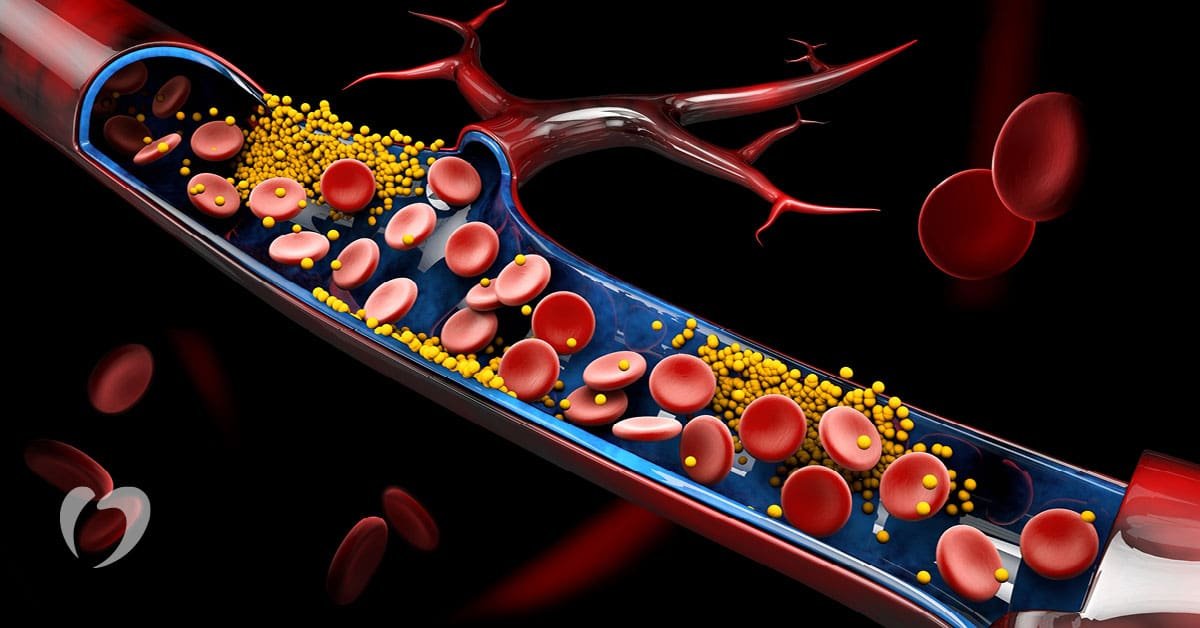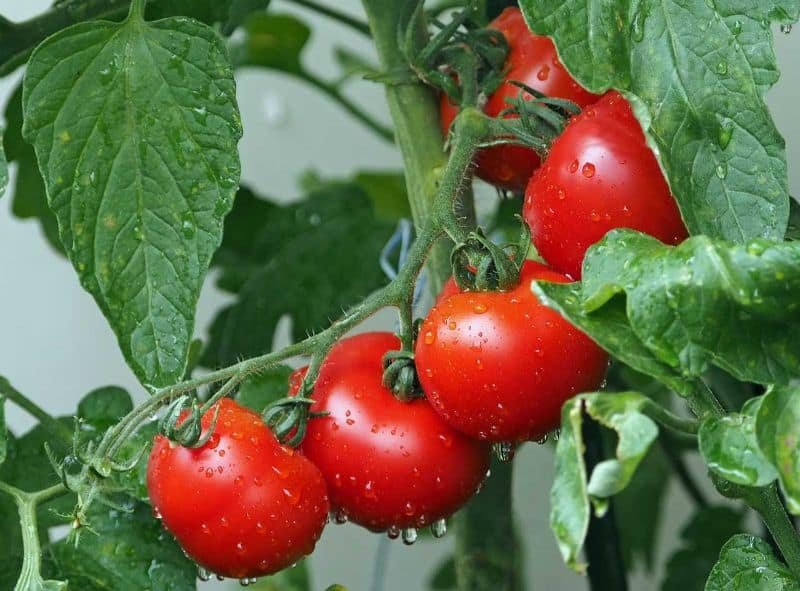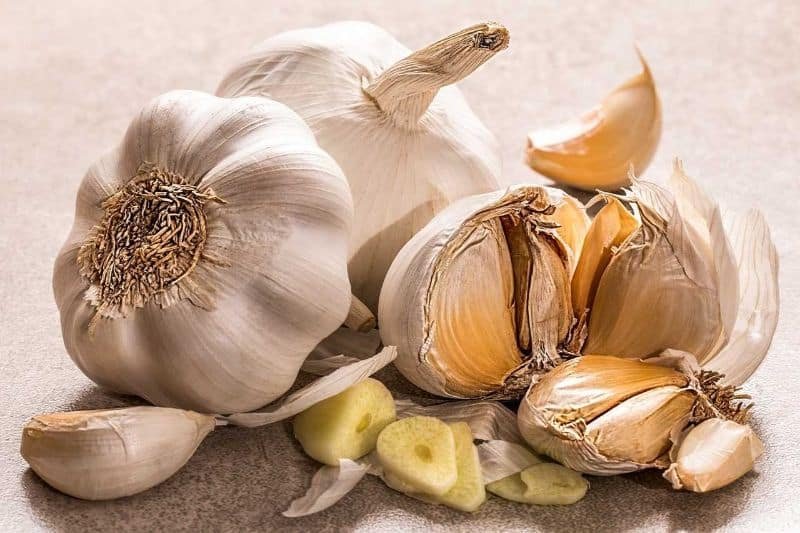24 Best Foods for High Cholesterol And Tips On How To Lower It Down

Cholesterol is a type of fat found in your blood. While your body needs some cholesterol to function properly, too much can lead to heart disease and other serious health problems.
If you’re one of the millions of Americans who struggle with high cholesterol, you may be wondering what you can do to bring those numbers down. Here are 23 of the best foods for high cholesterol that can help!
What is Cholesterol?
First things first. What is Cholesterol anyway?
Cholesterol is a waxy, fat-like substance that is found in all cells of the body. It is used to produce cell membranes, hormones, and vitamin D. The body needs cholesterol, but too much can lead to health problems.
HDL and LDL
There are two main types of cholesterol: high-density lipoprotein (HDL) and low-density lipoprotein (LDL). HDL is often referred to as “good” cholesterol because it helps remove LDL from the arteries. LDL is often referred to as “bad” cholesterol because it can build up in the arteries and cause blockages.
What are the best foods for high cholesterol?
There are plenty of delicious options that can help lower your cholesterol levels. Here are 16 of the best:
1. Spinach
One of the best leafy greens for heart health, spinach is packed with vitamins, minerals, and antioxidants. It’s also a great source of soluble fiber, which can help reduce cholesterol levels.
2. Tomatoes
Tomatoes are rich in lycopene, an antioxidant that has been shown to help lower cholesterol levels. They’re also a good source of fiber and vitamins A and vitamin C.

3. Oats
Oats are rich in soluble fiber, which can help reduce bad cholesterol levels. Soluble fiber binds with cholesterol in your gut and prevents it from being absorbed into your bloodstream. Just one cup of oats contains 4 grams of soluble fiber.
4. Barley
Like oats, barley is also rich in soluble fiber. In fact, barley contains more soluble fiber than oats do. A diet rich in soluble fiber has been shown to reduce bad cholesterol levels by up to 5% and can also help reduce the risk of heart disease.
5. Beans
Beans are another excellent source of soluble fiber. They’re also low in calories and high in protein, making them a great food for weight loss. One study found that people who ate a diet rich in beans had a 7% lower risk of heart disease.
6. Eggplant
Eggplant is a great source of a type of soluble fiber called pectin. Pectin has been shown to reduce LDL cholesterol levels and improve blood sugar control. Eggplant is also low in calories and makes a great addition to any meal.
7. Grapefruit
Grapefruit is rich in a type of soluble fiber called pectic acid. Pectic acid has been shown to reduce LDL cholesterol levels and improve HDL cholesterol levels. Grapefruit is also a good source of vitamin C, an important antioxidant.
8. Apples
Apples are another fruit that’s high in soluble fiber. They’re also a good source of antioxidants, which can help protect your heart health. One study found that people who ate apples had a 28% lower risk of stroke.

9. Avocados
Avocados are rich in monounsaturated fats, which can help lower bad cholesterol levels and improve HDL cholesterol levels. Avocados are also a good source of potassium, an important mineral for heart health.
10. Nuts
Nuts are a great snack for people with high cholesterol. They’re rich in monounsaturated fats and fiber, both of which can help reduce bad cholesterol levels. Nuts are also a good source of plant sterols, which can help block the absorption of cholesterol.
11. Seeds
Seeds are a great source of fiber, minerals, and vitamins. They’re also a good source of phytosterols, which can help reduce LDL cholesterol levels. One study found that people who ate flaxseeds had a 28% lower risk of heart disease.
12. Fatty fish
Fatty fish like salmon, mackerel, and sardines are rich in omega-3 fatty acids, which can help reduce triglyceride levels and improve HDL cholesterol levels. Fatty fish are also a good source of protein and make a healthy, delicious addition to any diet.

13. Olive Oil
Some vegetable oils like olive oil and canola oil are rich in monounsaturated fats, which can help lower bad cholesterol levels and improve HDL cholesterol levels. Vegetable oils are also a good source of antioxidants and can help protect your heart health.
14. Dark chocolate
Yes, you read that right! Dark chocolate is actually good for you. Dark chocolate is rich in flavonoids, which can help reduce LDL cholesterol levels and improve HDL cholesterol levels. Dark chocolate is also a good source of antioxidants and can help protect your heart health.
Related: Eating Chocolate and Drinking Red Wine Could Prevent Aging According Research
15. Legumes
Legumes are a great source of fiber, protein, and antioxidants. They’re also low in calories and make a healthy addition to any diet.
16. Vegetables
Vegetables are low in calories and fat and high in fiber and nutrients. They’re also a good source of antioxidants, which can help protect your heart health.
17. Fruits
Fruits are rich in vitamins, minerals, and antioxidants. They’re also a good source of soluble fiber, which can help reduce bad cholesterol levels. Fruits are also low in calories and make a healthy
18. Garlic
Garlic is one of the best foods for lowering cholesterol . Garlic is rich in a compound called allicin, which has been shown to reduce LDL cholesterol levels and improve HDL cholesterol levels. Garlic is also a good source of antioxidants and can help protect your heart health.

19. Green tea
Green tea is rich in antioxidants, which can help protect your heart health. Green tea is also a good source of catechins, which can help reduce LDL cholesterol levels. Matcha is a type of green tean that has 10X more antioxidants and 130+ more catechins than other tea varieties.
We recently wrote two articles on the health benefits of Matcha Green tea and the best Matcha green tea powders – if you want to check them out.
20. Psyllium husk
Psyllium husk is a type of soluble fiber that can help reduce LDL cholesterol levels. Psyllium husk is also a good source of antioxidants and can help protect your heart health.
21. Vinegar
Vinegar contains acetic acid, which has been shown to reduce LDL cholesterol levels. Vinegar is also a good source of antioxidants and can help protect your heart health.
22. Whey protein
Whey protein given as a supplement have been shown to lower both LDL and HDL cholesterol levels. Whey protein is also a good source of antioxidants and can help protect your heart health.
23. Soy
Soy is a great source of protein and fiber. Soy is also a good source of phytochemicals, which can help reduce LDL cholesterol levels and improve HDL cholesterol levels.
24. Turmeric
Turmeric is a spice that has been used for centuries in traditional Chinese and Indian medicine. Recent studies have shown that it may help to lower cholesterol levels, as well as reduce the risk of heart disease.
The active ingredient in turmeric, curcumin, is thought to be responsible for these effects. Curcumin can help to reduce the level of low-density lipoprotein (LDL) cholesterol, as well as increase the level of high-density lipoprotein (HDL) cholesterol. It may also help to prevent the formation of plaques in the arteries.
What Foods To Avoid?
1. Trans Fats
Trans fats are a type of man-made fat that is created when vegetable oils are hydrogenated. Trans fats are often found in processed foods, such as cookies, crackers, and margarine. Trans fats have been shown to raise LDL cholesterol levels and lower HDL cholesterol levels (21).
2. Saturated Fats
Saturated fats are found in animal products, such as meat, dairy, and eggs. They can also be found in certain plant-based oils, such as coconut oil and palm oil. Saturated fats have been shown to raise LDL cholesterol levels (22).
3. Refined Carbohydrates
Refined carbohydrates are found in foods that have been processed, such as white bread, pasta, and pastries. Refined carbohydrates have been shown to raise LDL cholesterol levels and can contribute to weight gain (23, 24).
4. Processed Meats
Processed meats are meats that have been preserved by smoking, curing, or salting. They include bacon, sausage, hot dogs, and lunch meats. Processed meats have been linked to an increased risk of heart disease and cancer (25, 26).
5. Alcohol
Heavy alcohol consumption has been linked to an increased risk of heart disease. Alcohol can raise LDL cholesterol levels and triglyceride levels in the blood (27, 28).
What Are The Benefits Of Lowering Cholesterol?
Tips For Keeping Low Cholesterol Levels
Cut down on fatty and processed foods
Eating a diet high in fatty and processed foods is one of the main contributing factors to high cholesterol levels. By cutting down on these types of foods, you can help to lower your cholesterol levels. Instead, focus on eating more fresh fruits, vegetables, and whole grains.
Get regular exercise
Exercise is another great way to reduce your cholesterol levels. Getting at least 30 minutes of moderate exercise each day can help to improve your cholesterol numbers. If you are not used to exercising, start slowly and gradually work your way up to more intense workouts.

Lose weight if necessary
If you are overweight or obese, losing weight can also help to lower your cholesterol levels. Even a small amount of weight loss can make a big difference. Try to lose weight gradually by making small changes to your diet and lifestyle.
Don’t smoke
Smoking is one of the worst things you can do for your cholesterol levels. If you smoke, quitting is one of the best things you can do for your health.
Limit alcohol intake
Drinking too much alcohol can also contribute to high cholesterol levels. If you drink alcohol, limit yourself to no more than two drinks per day.
Eat plenty of fruits, vegetables, and whole grains
Fruits, vegetables, and whole grains are all great foods for lowering cholesterol. They are packed with fiber and nutrients that help to keep your cholesterol levels in check. Aim for at least five servings of fruits and vegetables per day.
See your doctor regularly for cholesterol screenings
It is important to get your cholesterol checked on a regular basis. This will help you to keep track of your numbers and make sure that they are in a healthy range. Talk to your doctor about how often you should get your cholesterol checked.
Also, Keep in Mind
Whole grains contain fiber, vitamins, minerals, and phytochemicals. These nutrients can help reduce the risk of heart disease by lowering bad cholesterol levels, improving blood sugar control, and reducing inflammation.
Soluble fiber is found in oats, barley, psyllium husk, apples, citrus fruits, carrots, beans, and peas. Soluble fiber can help lower LDL cholesterol levels by binding to it in the digestive tract and preventing its absorption into the bloodstream.
Foods rich in omega-3 fatty acids include salmon, tuna, mackerel, herring, sardines, trout, and anchovies. Omega-3 fatty acids can help lower triglyceride levels and reduce the risk of heart disease.
Final Take
There are many different types of food that can help lower cholesterol and protect heart health. Adding some of these foods to your diet can help you maintain a healthy cholesterol level and reduce your risk of heart disease.
These are just a few of the best foods for high cholesterol. Adding these foods to your diet can help you lower your cholesterol levels and improve your overall health.
It is equally important to try and avoid as much as possible the foods that are high in cholesterol, such as saturated fats and processed meats. These foods can increase your LDL cholesterol levels and raise your risk of heart disease.
Making lifestyle changes, such as eating a healthy diet and getting regular exercise, can also help lower your cholesterol levels. If lifestyle changes alone are not enough to lower your cholesterol levels, your doctor may prescribe a cholesterol-lowering medication. These medications can help reduce your LDL cholesterol levels and improve your overall health.
The best way to lower your cholesterol is to eat a healthy diet, get regular exercise, quit smoking, and lose weight if you are overweight or obese. Adding these foods to your diet can help you meet your goals.
So there you have it, 24 of the best foods for high cholesterol. Adding these foods to your diet can help lower your cholesterol levels and improve your overall health.
